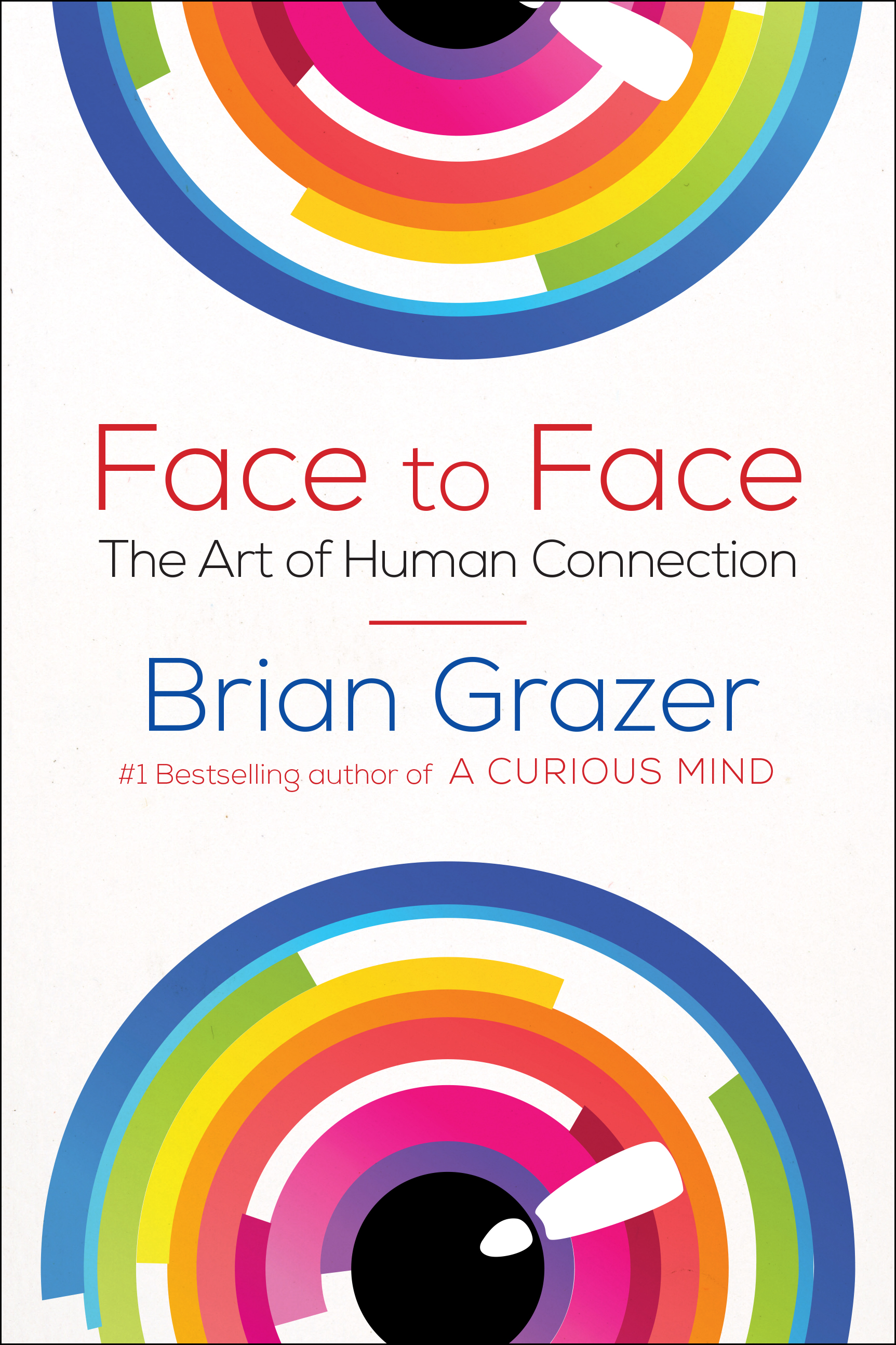Once I recognized this skill, my life legitimately started to change for the better. I know it sounds trite but it’s true. And that pretty much explains how I got here. I never imagined myself writing books. I’ve always made movies and television. But after years of indulging my curiosity and conducting what I call “curiosity conversations”—conversations with interesting strangers that I use to learn about someone or something new—I decided to write my first book, A Curious Mind: The Secret to a Bigger Life. In it, I explore the joys of curiosity and its power to transform our lives. Then, I started to think about how these curiosity conversations have really worked—what made them so impactful. I quickly realized that it was the ability to connect with someone—to look them in the eye and signal to them that I wanted to actually listen to them and learn from them. Figuring out how to connect has probably been the most important skill I’ve learned in life, and I use it every day: in negotiations, on movie sets, with friends, and especially in new situations. Human connection is my antidote to living a life that would have been more defined by my learning disability. Instead, I found these skills and they’ve made my life so full.
What I know about connection comes from my own experience and instincts. There is compelling research, however, to back up my personal truth. Harvard researcher, Dr. Robert Waldinger, for instance, has found that “people who are more socially connected to family, friends, and community are happier, healthier, and live longer than people who are less well connected.” Other studies show that good relationships appear to protect our brains, helping our memories stay sharper longer. This suggests that staying connected should be just as important as exercise or a good diet when it comes to taking care of ourselves.
When I read these kinds of studies and think about the profound impact the ability to connect has had on me, I can’t help but worry. In today’s world, we seem to be losing this key ingredient to our health, happiness, and success. Everything is always go, go, go. We don’t take the time to really seethe people in front of us; we are not patient enough to stick with the gradual process of building meaningful relationships. Instead, the modern impulse is for quick, transactional communication. I find this to be especially true in business, where people can be more interested in “getting ahead” and “getting it done” than getting to know one another— what motivates someone else, what they care about. When actually, getting to know one another is almost always the most effective path to getting anything done, both in the near term and the long run.
Technology only exacerbates the problem. Think of how often you’ve seen a couple out at dinner scrolling through their Instagram feeds, both engrossed in their phones instead of each other. Or parents tapping away at their screens while their kids vie for their attention. Or a room full of ex-ecutives looking at their email instead of paying attention to the person presenting. Every day we seem to take another step away from the vital practice of interacting with the people right in front of us. Now, I’m the first to acknowledge the benefits of having a mobile computer in our hands, and yes, I am known to post breakfast videos from my backyard. But the more preoccupied we become with devices and the more social media monopolizes our attention, the more we seem to be sacrificing real connections for virtual ones, and the rewards of these mediated relationships just aren’t the same.
Despite the fact that we’re more “connected” than ever before, isolation and loneliness are increasingly serious issues for many of us. In one study of Americans ages 19 to 32, the top 25 percent of social media users were twice as likely to report feeling lonely as the people using it least. Sure, loneliness existed long before the internet and social media, but we seem to have reached a new level of alienation. Nearly half of all Americans today say they are lonely and in the UK the problem was severe enough to warrant the appointment of the first “Minister for Loneliness.” I would venture to say that people today are starving for genuine relationships, a sense of belonging, and the feeling of being known and understood.

Excerpted from Face to Face: The Art of Human Connection with permission from the author and publisher.
Follow us here and subscribe here for all the latest news on how you can keep Thriving.
Stay up to date or catch-up on all our podcasts with Arianna Huffington here.


